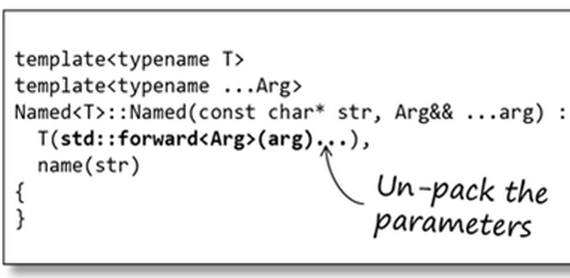Urbana Proposals - C++17 insight?
I've started with my series on the proposals for the next C++ Committee Meeting:
Urbana Proposals - C++17 insight?
by Jens Weller
From the article:
A short series to give you an overview over the Papers submitted in the latest mailing for the C++ Committee Meeting in Urbana-Champaign in Illinois. At the beginning of November the C++ Committee will have its 3rd Meeting this year. As C++14 is now finished, the focus is clearly on the upcoming C++17 standard.

 Recently on StickyBits, a nice primer on variadics:
Recently on StickyBits, a nice primer on variadics: Recently on Tales of C++:
Recently on Tales of C++:
 Here's a recent series that just got a new instalment today: It introduces template basics in a nicely explained and accessible way suitable for a gentle introduction, and then going on to progressively help the reader develop stronger template muscles.
Here's a recent series that just got a new instalment today: It introduces template basics in a nicely explained and accessible way suitable for a gentle introduction, and then going on to progressively help the reader develop stronger template muscles.